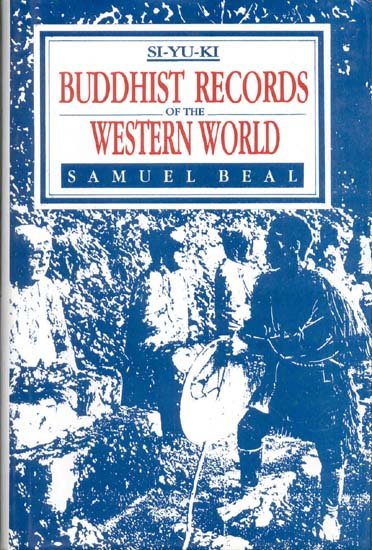The travels of Fa-Hian (400 A.D.)
by Samuel Beal | 1884 | 20,385 words | ISBN-10: 8120811070
This is the English translation of the travel records of Fa-Hian (or, Faxian): a Chinese Buddhist monk who traveled by foot from China to India between A.D. 399 and A.D. 412. The full title is: The travels of Fa-Hian: Buddhist-country-records; By Fa-hian, the Sakya of the Sung (Dynasty) [Date, 400 A.D]. This work is an extract of the book “Buddhi...
Chapter II
This land is rugged and barren. The clothing of the common people is coarse, and like that of the Chinese people; only they differ in respect to the serge and felt. The king of this country honours the law (of Buddha). There are some 4000 priests, all of the Little Vehicle belief (learning). The laity and the Sramanas of this country wholly practise the religion of India, only some are refined and some coarse (in their observances). From this proceeding westward, the countries passed through are all alike in this respect, only the people differ in their language (Hu words). The professed disciples of Buddha, however, all use Indian books and the Indian language. Remaining here a month or more, again they went northwest for fifteen days and reached the country of Wu-i (Wu-ki?). The priests of Wu-i also are about 4000 men; all (belong to) the Little Vehicle (school of) learning; their religious rules are very precise (arranged methodically). When Sramanas of the Ts’in land arrive here, they are unprepared for the rules of the priests. Fa-hian obtaining the protection of Kung-sun, an official (hing fang) of the Fix (family), remained here two months and some days. Then he returned to Pao-yun and the others. In the end, because of the want of courtesy and propriety on the part of the Wu-i people, and because their treatment of their guests was very cool, Chi-yen, Hwui-kin, and Hwui-wu forthwith went hack towards Kao-chang, in order to procure necessaries for the journey. Fa-hian and the others, grateful for the presents they received of Fu Kung-sun, forthwith journeyed to the south-west. On the road there were no dwellings or people. The sufferings of their journey on account of the difficulties of the road and the rivers (water) exceed human power of comparison. They were on the road a month and five days, and then managed to reach Khotan.
